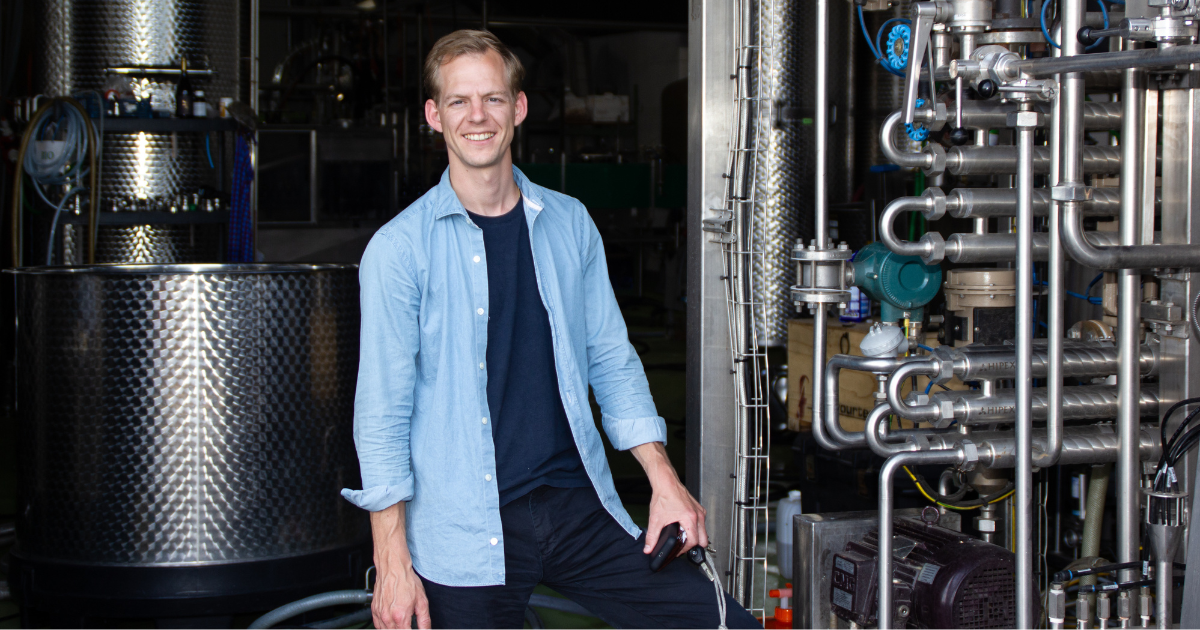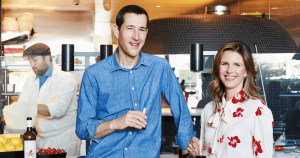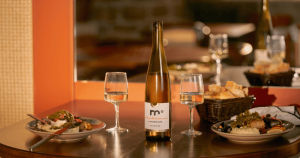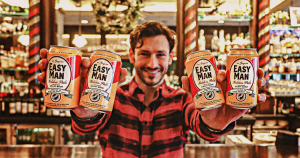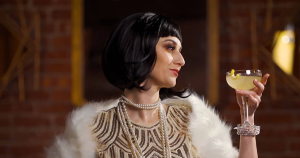In this Q+A, Philipp Rössle, Founder and CEO of Kolonne Null, shares his journey from being an artist fascinated by the art of winemaking to establishing a specialized non-alcoholic wine company. He also discusses the importance of balancing traditional craftsmanship with innovation, plus the challenges of breaking into a market steeped in alcoholic wine culture.
Philipp, can you share your initial inspiration behind starting Kolonne Null? What drove you to delve into the world of non-alcoholic wines?
I have always had a passion for indulgence, but as a former artist I was, and I am of course, very attached to all artistic processes. Wine making is an art. It is based on tradition and craftsmanship. That has always fascinated me. Five years ago, when I founded Kolonne Null, the market for non-alcoholic wines was still in its infancy. I thought there should be a wine that, despite being dealcoholized, retains the characteristics of a classic wine and is still a pleasure to drink—without the subsequent remorse. Thus the idea for Kolonne Null was born.
Your mission emphasizes both respecting traditional craftsmanship and pushing boundaries for innovation. How do you strike a balance between these two aspects in your production process?
It is possible to appreciate the traditional craft of winemaking and still be innovative and forward-looking. Modernity does not exclude tradition. We combine both. The production processes are characterized by traditional methods. Creating alcohol-free wine requires a deep understanding of the traditional methods used in winemaking, which have been honed over millennia. Equally important is the need to critically examine and shed light on all aspects of this process, from the cultivation of grapes in the vineyard to the intricate process of alcohol removal.
Since 2018, Kolonne Null has evolved from industry newcomers to leaders. Can you describe some pivotal moments or decisions that contributed to this journey?
A lot has happened between the founding in the Schöneberg studio to the current company headquarters in Crellestrasse. Among them are special milestones we look back proudly:
- Over the years, we launched five outstanding sessions developed with renowned winemakers such as Fürst Löwenstein
- Our sparklings were introduced to the market in magnum and half-bottle
- Our product portfolio grew from one Riesling to six wines in the annual collection, with the addition of exclusive vintage wines such as the 2021 cuvée of Burgundy grapes, the Verdejo, and the Cuvée Rouge No.01
In addition to the products permanently represented in the portfolio, the Kolonne Null wine laboratory has also launched many other experiments over the years:
- Fresh wines from direct pressing and temperature-controlled fermentation
- Residually sweet selections
- Rosé saignée wines aged in large wooden casks
- White, orange, and red wines aged in fresh oak barrique barrels
You’ve built what is described as “probably the most specialized non-alcoholic wine company in the entire world.” Can you share some insights about your partnerships and production process?
To ensure the outstanding quality of Kolonne wines, our focus is on partnership with family wineries throughout Europe and the constant development of the wines by our own cellar master in the wine laboratory.
The work already begins in the vineyard before the harvest. Together with our partner winemakers, we develop the initial wines with alcohol to ensure an exquisite aroma. Only when the initial wine pleases us, then we dealcoholize it in our laboratory. Our lab allows us to dealcoholize samples of wine on a small scale—so we can tell how much of the aroma will be preserved and if undesired off-flavors occur after alcohol removal. If we do not like the outcome after this process, we optimize the initial wine less the dealcoholization. Both are dials to define and refine the taste.
How do you see the future of non-alcoholic wines, especially in a market where alcoholic wines have such a deep-rooted history and culture?
Alcoholic wines are very deeply rooted in our market, but we must not forget that Germany is also the market leader in the field of non-alcoholic wines/sparkling wines. Sober curiosity is a trend that also originates from here. Indulgence and a conscious lifestyle are not mutually exclusive. This message has meanwhile arrived in the USA, England, and Japan.
What challenges have you faced in promoting and establishing non-alcoholic wines, and how have you overcome them?
When we started Kolonne Null five years ago, non-alcoholic wine was still a new category for customers and there was little knowledge about it. There were many prejudices, such as that it was not real wine but grape juice, that it had no quality, and that it was much too sweet. Over the years, through a lot of educational work, self-confident marketing, and consistently outstanding quality, we have made a name for ourselves both in the industry and among customers. And we’ve contributed to the fact that non-alcoholic wine became presentable.
Can you share any upcoming products or innovations that fans of Kolonne Null can look forward to?
We are currently working on a new red wine from France that will be launched this autumn. Stay tuned.


